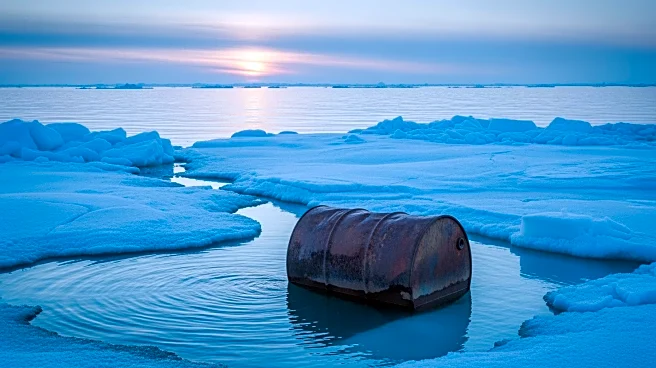What's Happening?
Blue Moon Metals plans to dispose of mining waste from the Nussir ASA copper mine in Repparfjord, a protected salmon fjord in Norway's Arctic. The disposal plan involves depositing 1-2 million metric tons of tailings annually, raising concerns among Indigenous
Sámi fishers and herders about potential environmental impacts. The Norwegian Environment Agency has approved the plan, but Sámi residents fear it will harm marine habitats and disrupt traditional reindeer breeding areas.
Why It's Important?
The disposal of mining waste in Repparfjord highlights the tension between industrial development and environmental conservation. The Sámi communities rely on the fjord for fishing and reindeer herding, integral to their cultural and economic livelihoods. The potential ecological impact of the waste disposal could threaten biodiversity and disrupt traditional practices, raising ethical and legal questions about resource management and Indigenous rights.
What's Next?
The European Commission has designated the Nussir project as a strategic critical raw material project, emphasizing its importance for the EU's green energy transition. However, ongoing opposition from Sámi communities and environmental activists may lead to further scrutiny and potential legal challenges. As the project progresses, stakeholders will need to balance economic interests with environmental protection and Indigenous rights.
Beyond the Headlines
The situation in Repparfjord reflects broader global challenges in balancing industrial growth with environmental sustainability and cultural preservation. The concerns of the Sámi communities underscore the need for inclusive decision-making processes that respect Indigenous knowledge and rights. This case may influence future policies on resource extraction and environmental management, promoting more sustainable and equitable practices.















